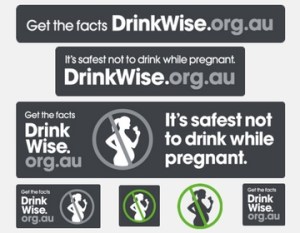
Australia’s major beer companies have called for pregnancy warning labels to be adopted across all alcohol products as a matter of urgency.
The Brewers Association of Australia has stated that too many have been too slow to do this, with CEO Brett Heffernan making the following statement.
“Our members are leaders in responsible marketing practices, including pregnancy warning labels. All have been 100% compliant in carrying the warning symbol on all beers they make for years. And, as they acquire new brands, those labels are brought up to speed. But the whole alcohol sector needs to step up.
“A voluntary system is an opportunity for industry to demonstrate that it is responsible and responsive. After six years of voluntary pregnancy labelling it is bewildering that so many are still dragging their heels and giving the whole industry a black eye. Any alcohol produced in Australia since 2012 could, and should, bear the warning label by now.
“There is simply no excuse for any further delay in adopting pregnancy warning labels on all alcohol products made in Australia. We are calling on all industry players to fix it. That said, the current pregnancy warning labels are having an impact. Research commissioned by DrinkWise Australia shows that 89% of the young adult population recall the warnings on product labels and packaging.
“According to the latest Australian Institute of Health and Welfare National Drug Strategy Household Survey, 55.6% of pregnant women in Australia do not drink alcohol at all. The data points to an encouraging trend of continual improvement, up from 40% in 2007. Among the 44.4% of women who did consume alcohol while pregnant, 97.3% were having no more than one to two standard drinks over the course of their pregnancy. While the trends are very positive, there is still more to do.”
Heffernan also stresses that the industry, government and community must commit to tackling Fetal Alcohol Spectrum Disorders (FACD) collaboratively.
“We take FASD seriously and we are keen to partner with the Australian Government, the rest of industry and community on practical, workable solutions,” he states. “Making further inroads into the incidences of FASD will take a long-term commitment and, to be effective, evidence-based, targeted interventions for at-risk groups will require a combination of education resources and effort from governments, industry and the community. Australia’s major brewers are willing to do their part.”
